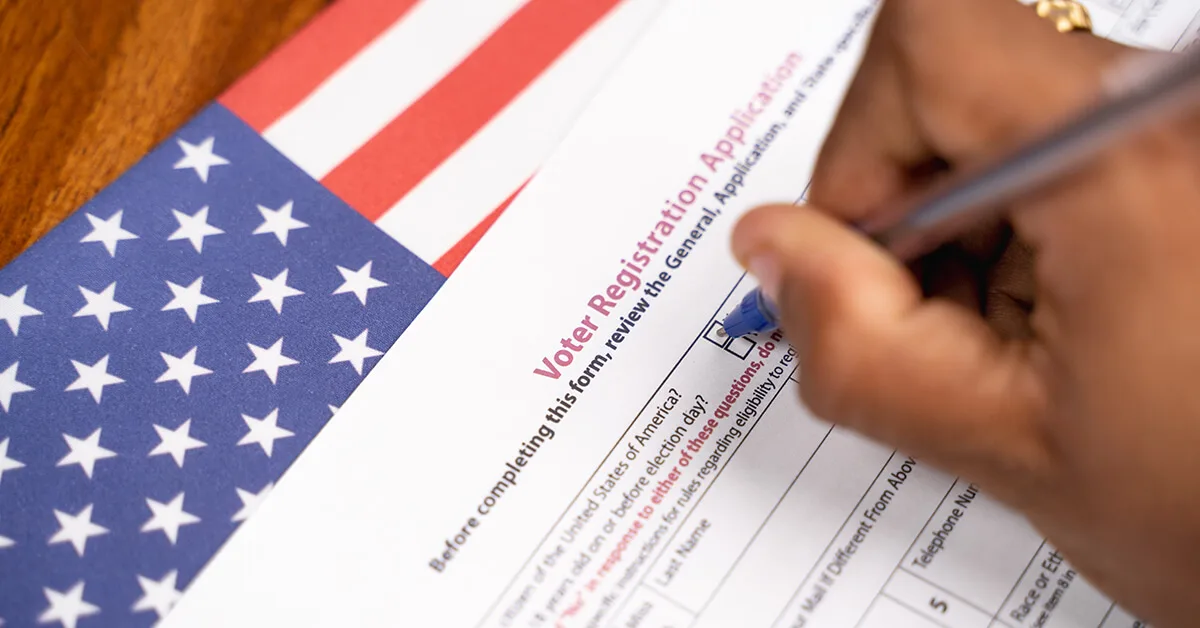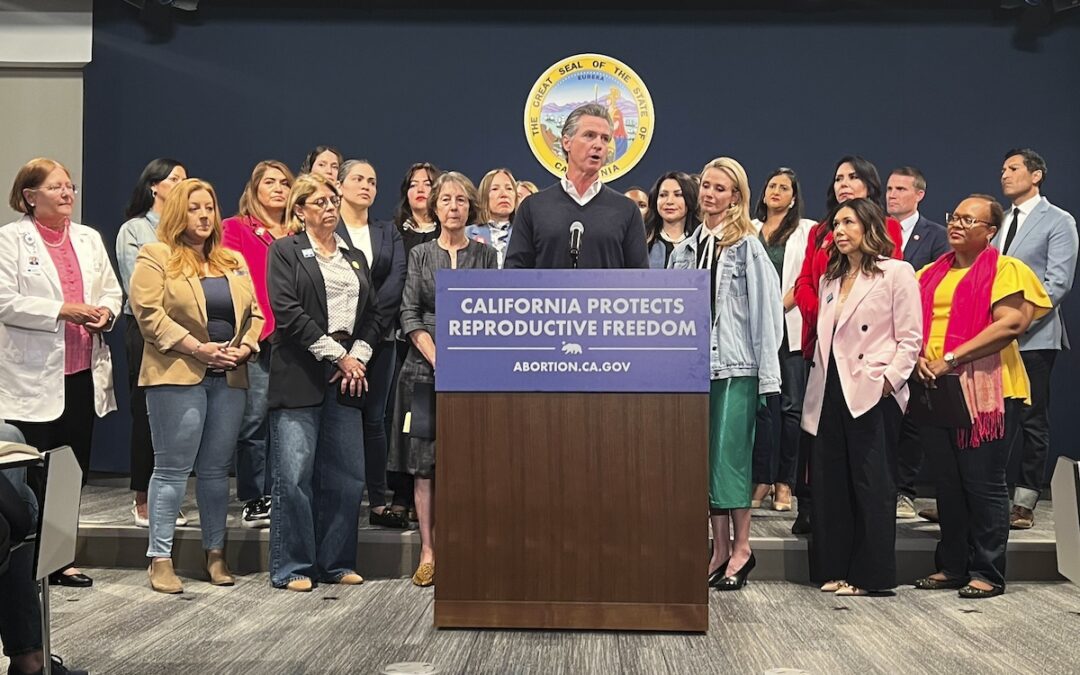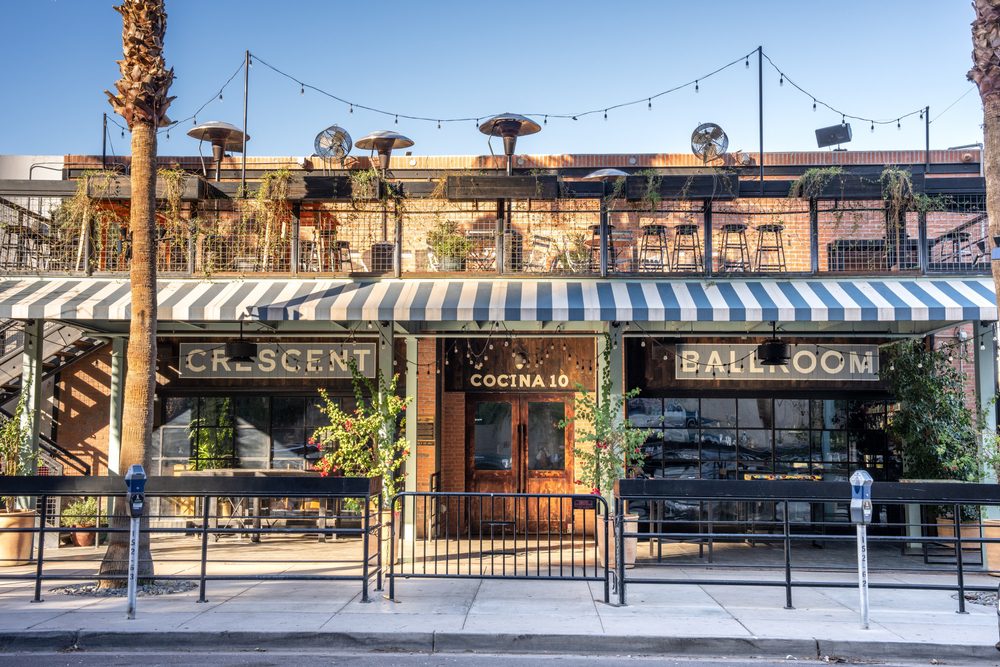
ShutterStock
Democrats registered 226,579 new voters from 2018 to 2020.
Arizona Democrats registered more new voters in the last election cycle than any other party, moving ahead of independents in registration for the first time in 10 years – but still failing to overtake Republicans.
Democrats registered 226,579 new voters from 2018 to 2020 to reach 1.38 million voters, or 32.2% of the total, according to the latest numbers from the Arizona Secretary of State’s office. Republicans added 220,446 in the same period, but still had 35.2% of registered voters at 1.5 million.
The number of voters not affiliated with any party grew by 117,627, to 1.36 million voters, or 31.7% of the total.
But Democratic leaders remained focused on the positive, saying that they are in it for the long haul – that the gains in this cycle have been years in the making and that they expect to keep making gains in years to come.
“Political change and voter registration is something that doesn’t happen overnight or (in) a cycle,” said state Rep. Reginald Bolding Jr., D-Phoenix.
Bolding credited new, young voters for the surge in Democratic registrations, while other leaders pointed to a growing population of Latino voters who are increasingly engaged and who lean Democratic.
Wherever the new voters came from, advocates said grassroots outreach and involvement were instrumental in bringing them out and getting them registered, which was especially important in the face of the pandemic.
Rep. Ruben Gallego, D-Phoenix, said in a conversation hosted by NDN earlier this month, that with long-term organizing, “You don’t see a return on investment for years, but when it happens, it’s big.”
Gallego said the process of energizing Latino voters began years ago, as a reaction to the anti-immigrant rhetoric of then-Maricopa County Sheriff Joe Arpaio and the impact of SB 1070, the “papers please” law that let local police demand citizenship documentation from anyone they stopped.
“(The) Latino community in Arizona had been educated and organized over 10 years,” Gallego said. “The real benefit of Arpaio and SB1070 is the fact that it helped create the organizations and activists that turned 2020 blue.”
So much so, Gallego said, that when President-elect Joe Biden’s campaign team asked him to put together a Latino leaders network for Arizona, he “just hit the send button” to a network he had built for the past 10 years.
Joseph Garcia, executive director for Chicanos Por La Causa Action Fund, said this election was a “referendum on Donald Trump.” That feeling was particularly strong among Latino voters because of Trump administration policies in immigration, family separation, and deferred deportation that Garcia said were “harmful to the Latino community.”
“There were a lot of people who wanted change,” Garcia said.
But the outreach was not without its challenges. Groups like Chicanos Por La Causa had to get creative to register voters remotely while staying safe during the pandemic. Lydia Guzman, the group’s director of advocacy and civic engagement, said she created a bilingual video campaign that showed people how they could register to vote in just a few minutes.
Because of the COVID-19 lockdown that was imposed in Arizona in the spring, progressive groups successfully sued to extend voter registration beyond the statutory Oct. 5 deadline, arguing that the lockdown threatened to disenfranchise thousands of potential voters. That ruling was overturned 10 days later, and registration for November’s election was stopped – but not before both parties and independents registered thousands of new voters in the brief window.
Bolding said local advocacy groups were able to register tens of thousands of additional voters during the brief court-ordered extension because of their ongoing grassroots work. But it was not just about registering voters, he said, but also mobilizing them to get out and vote.
November’s elections the highest voter turnout in decades at 79.9 percent, second to 80.1 percent in 1980.
“That’s the remarkable thing that even with a pandemic, as many people showed up,” Garcia said. He gives much of the credit to the state’s long history with mail-in voting.
“In a global pandemic, I think many people expected that we would see lower turnout… that would make it more difficult for them to be engaged,” Bolding said. “But in fact, we’ve seen the complete opposite.”
Democrats’ gains at the ballot box, like their gains in registration, were mixed. Biden was the first Democrat to win the presidential vote in Arizona in 24 years and the election of Sen. Mark Kelly gave the state two Democratic senators for the first time in almost 70 years. But Republicans maintained control of both chambers of the Legislature in addition to capturing many local races.
Requests for comment from the Arizona Republican Party were not returned. But Jason Mollica, a communications professor at American University, said the Democratic Party still has its work cut out for it.
“I don’t think in any stretch the imagination should Democrats be celebrating,” said Mollica, pointing to the party’s inability to turn the “blue wave” many had expected, both nationally and in the state.
“It’s something to be said for them to turn a red state into a blue state,” he said. “But it’s not something where, OK, we can sit back now on our laurels and know that we won. There still needs to be work.”
Arizona Democrats are celebrating their wins – but agree that there’s work to be done.
Garcia said registering new voters is just part of a larger cycle of civic engagement. He hopes to see “generational change across the board” with how people view the process of voting and its importance.
Guzman said that while talking to voters, she saw a greater social and political awareness and that voters, especially Latino voters, wanted to vote to empower themselves, their families, and communities.
Gallego thinks the party is on the right track and is hopeful for the future because it “activates and holds” the registration and re-registration of voters. Registration is an important step, he said, but “voter registration without political infrastructure makes no sense.”
“You get young people to vote once and nothing changes, it’s going to be hard for you to get them back,” said Gallego.
Politics

Gov. Gavin Newsom wants to let Arizona doctors provide abortions in California
California law generally allows abortion up to the point of fetal viability, which is around 24 weeks. SACRAMENTO, Calif. (AP) — Arizona doctors...

VIDEO: Arizona Attorney General Kris Mayes indicts 18 ‘fake electors’
@coppercourier An Arizona grand jury has indicted former President Donald Trump's chief of staff, Mark Meadows, lawyer Rudy Giuliani, and 16...
Local News

Escape the heat at these indoor pools in Tucson
Arizona: it's synonymous with sunny. Mix that sun with the sprawling urban blacktops and the result is the nationally recognized heat that is...

We asked, you answered: 7 music venues in Arizona for a more intimate show
The biggest artists in the world come to Arizona to perform at places like Footprint Center, State Farm Stadium, and Desert Diamond Arena. But what...




